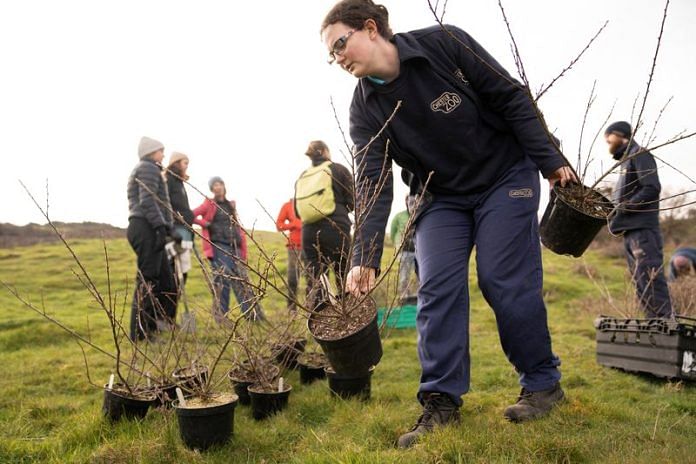By Helena Williams
LONDON (Reuters) – At a secret location in the Welsh countryside, naturalists have planted 30 young specimens of a once-common plant that has been collected – and nibbled – almost to extinction.
Cotoneaster Cambricus, Welsh Cotoneaster, only grows on wild and windy cliffs in North Wales. By the 1960s, overcollection by 19th-century enthusiasts and grazing by sheep, goats and rabbits had reduced the number in the wild to just six.
But decades of painstaking conservation efforts have boosted that number to around 110, helped by the latest planting of specimens cultivated at nearby Chester Zoo.
“When people think of endangered species, you think of rhinos and orangutans and things like that. But now, actually, 40% of the world’s plant species are threatened with extinction to some degree or another,” said Phil Esseen, the zoo’s Head of Plants.
“I think that would surprise people. And also it would surprise them that there are actually plant species right on their own doorstep, in north Wales, which are critically endangered.”
Earlier in March, the team planted out short, bare shrubs from pots to their new homes in the stark Welsh countryside.
“They’re not the most spectacular plant but, you know, you can’t just go by looks. They have small, white flowers in May, and then they produce berries in autumn,” Esseen said.
“It’s really important that we conserve local species,” he added.
“All species are part of the living environment and they all interact with each other, so we’ve got to try and keep as many of those as possible.”
Planted with varying degrees of protection from the local wildlife, whose attentions can stunt growth and prevent natural reproduction, the conservation team eventually hope to create a stable population.
“In terms of timescale … it’s probably going to be decades,” Esseen said.
(Reporting by Helena Williams; writing by William James; Editing by Kevin Liffey)
Disclaimer: This report is auto generated from the Reuters news service. ThePrint holds no responsibilty for its content.



